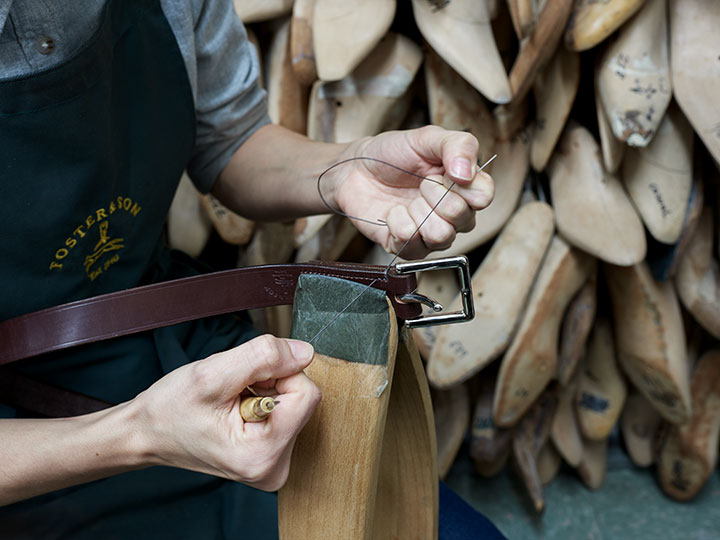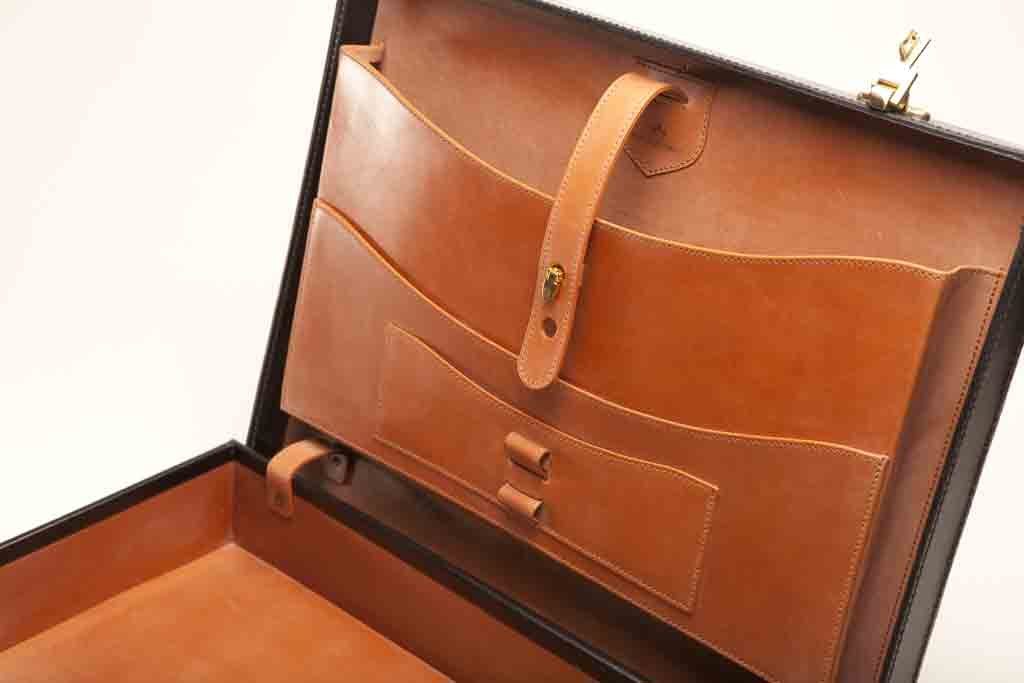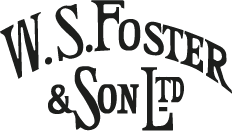Foster & Son
We are long established fine bespoke shoemakers and one of very few heritage firms in London today.
Our bespoke product is hand-crafted in our London workshop and we also design and make leather products.
We enjoy an international clientele spanning over 80 countries and travel widely to serve them.
Bespoke shoemaking is still our most important activity, but we are also well known for the high quality of our luggage, cases and ancillary goods.
History and Heritage
Our business has a few strands of history – past and present:
Foster & Son traces its history back to 1840, trading close to St. James’s Palace, the historic source of Royal and aristocratic patronage. Over many decades we earned a reputation for fine “West End” style shoes and boots, with a strong following in the city, business and equestrian community. From the mid 1960’s our celebrated last maker Terry Moore further developed the refined toe shapes for which the company is best known today.
Henry Maxwell, was founded in 1750 as a spur maker and operated as purely a spur manufacturer until the mid-20th century. From the mid-20th century Maxwell began making hunting and riding boots as well as bespoke shoes as a result of taking over the renowned bookmaker Faulkner & Son. The Maxwell business passed through many hands and decline until Foster & Son bought Henry Maxwell in the late 1990’s, manufacturing all of its bespoke boots and shoes from that date. In October 2022 Foster & Son parted ways with the Henry Maxwell brand and have no further association with it. Foster & Son and its workshop ceased manufacturing any Henry Maxwell products from October 2022 although we continue to service any items that you purchased directly from us prior to that date.
Customers
The company’s clients come from many countries and cultures. The USA is our biggest market overall for bespoke work, with a strong representation from bankers, lawyers, IT and entertainment industry professionals and established families. Japan is an important market.
Our domestic English customers have a healthy share of our walk-in trade and are drawn from all walks of life from peers of the realm to young professionals. After the USA and Japan, no overseas market accounts for more than 5% of sales, so distribution is very wide across the globe.
Our domestic English customers have a healthy share of our walk-in trade and are drawn from all walks of life from peers of the realm to young professionals. After the USA and Japan, no overseas market accounts for more than 5% of sales, so distribution is very wide across the globe.
The Foster & Son Product offering
Foster & Son’s reputation comes from the skills and heritage of its bespoke workshop. The elegance and fit of a Foster bespoke shoe took generations to perfect and is the endowment of a skilled team of makers.
A pair of our bespoke shoe usually takes over 6 months to make and a close-knit team is required to ensure that the customer’s unique aspirations are fulfilled and the Company’s standards are maintained. Because each pair of shoes is essentially a collaborative project between the shoemakers and the customer, our bespoke work builds close personal relationships and our service is rewarded by a high degree of loyalty from our clientele around the World.
How are bespoke shoes and boots made, compared to “ready to wear” shoes?
Our flagship bespoke shoes are handmade in the same way as 100 years ago, using the finest materials. Leather for the soles is supplied by an English oak bark tannery with a history stretching back centuries, and for the uppers the finest leathers are sourced from around the World.
It is vital for the customer to be met personally, his or her feet measured and the specification and design agreed so that he or she receives a pair of completely unique shoes. Necessarily, this process takes time and typically the customer receives his shoes in 6 to 12 months
The making process consists of a number of stages, each of which requires years’ of training and experience for a top quality result.
1) Measuring the customer’s feet and making the beech wood last on which the shoes will be constructed. This is crucial, as everything depends on an accurate and aesthetically pleasing last.
2) Cutting the pattern and leather components. This is similar to the cutter in a Savile Row tailor and requires similar skills because of the complex three dimensional shapes to which the leather has to be fitted.
3) Applying punching and notching decoration, and stitching together the upper parts, called ”Closing”. This has to be precisely done so that the aesthetic is right and the uppers fit naturally to the curves of the last without stress on the leather.
4) Making the shoes. The uppers, inner sole and other components are temporarily attached to the last and are stitched together by hand using flax thread with an awl and a pig’s bristle to draw the thread.
5) Finishing the shoes is also very important, as we aspire to deliver beautifully finished and polished shoes to our customers, often including customised fading or antiquing techniques.
The result is a unique shoe reflecting the maker’s own personality, experience and skill as well as the customer’s specifications.

Cases and leather goods:
Foster & Son have a reputation of 50 years’ standing for briefcases, attaché cases and other leather goods, many of which are custom made to the client’s specifications in our own workshop.

The Brand portfolio
Foster & Son est. 1840 has the longest continuous heritage of any London bespoke shoemakers.
Our brand integrity is strongly supported by historic royal warrants, distinguished client records, and a stylistic inheritance from our famous last maker Terry Moore.
Foster is known for their precise fit and the elegance and refinement in their toe shapes.
